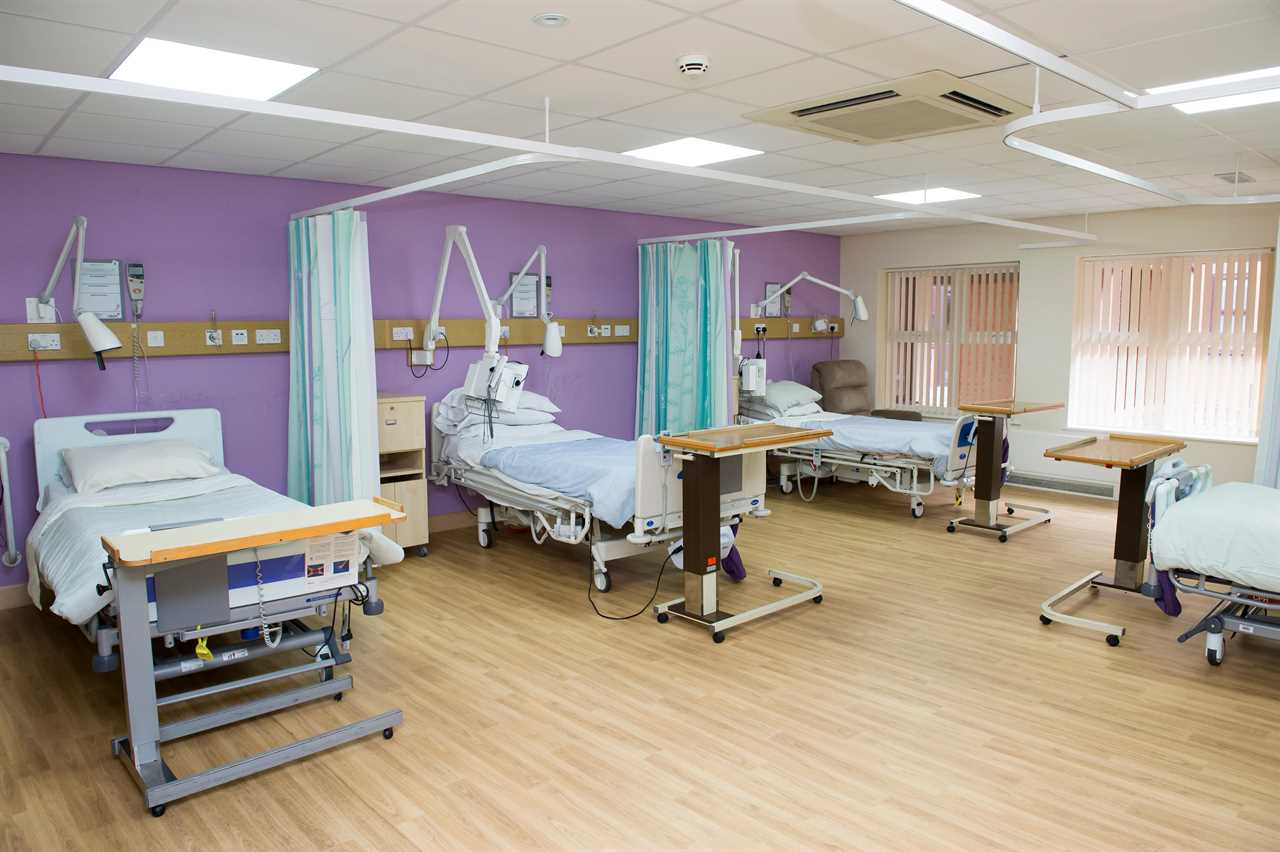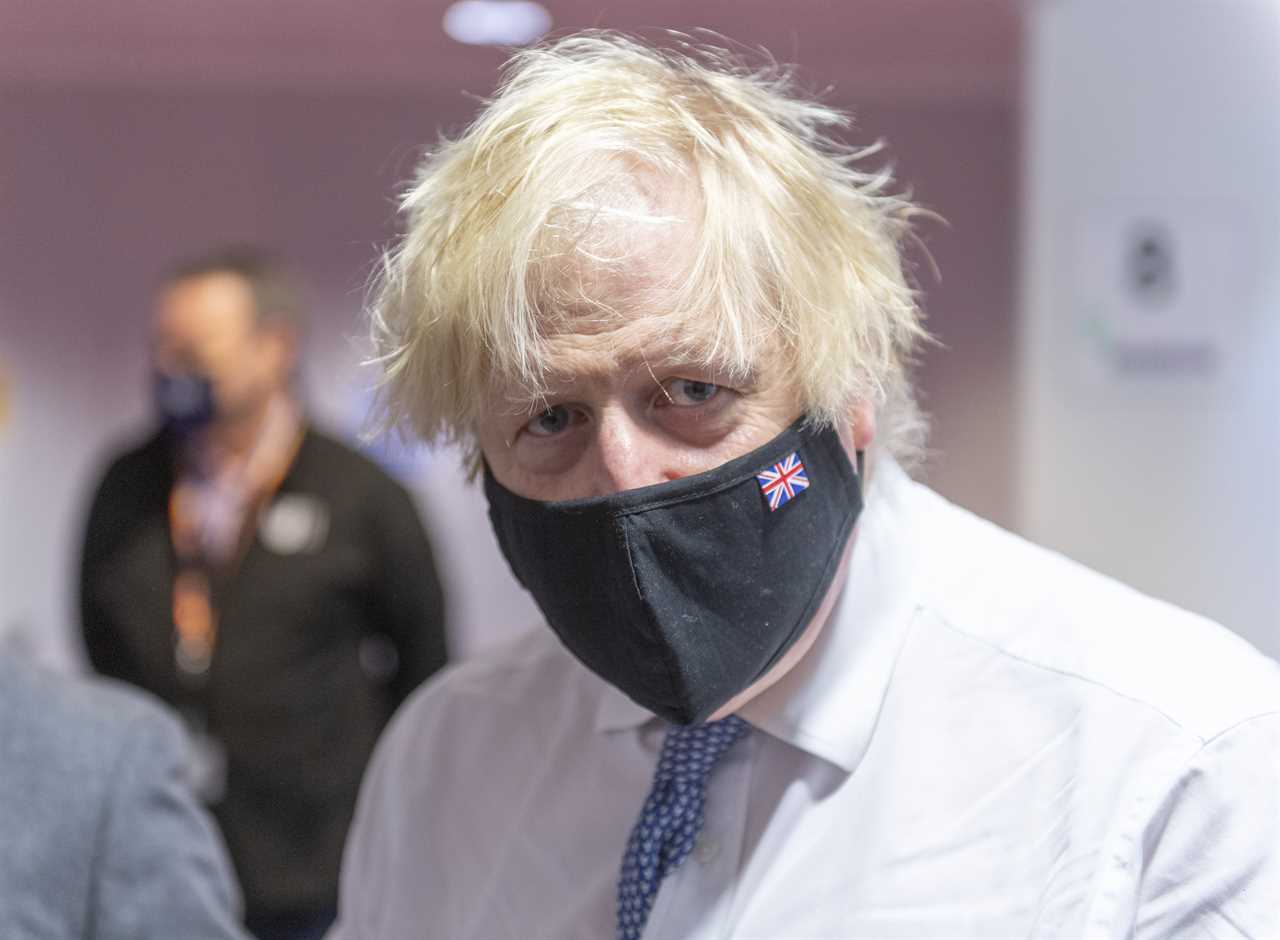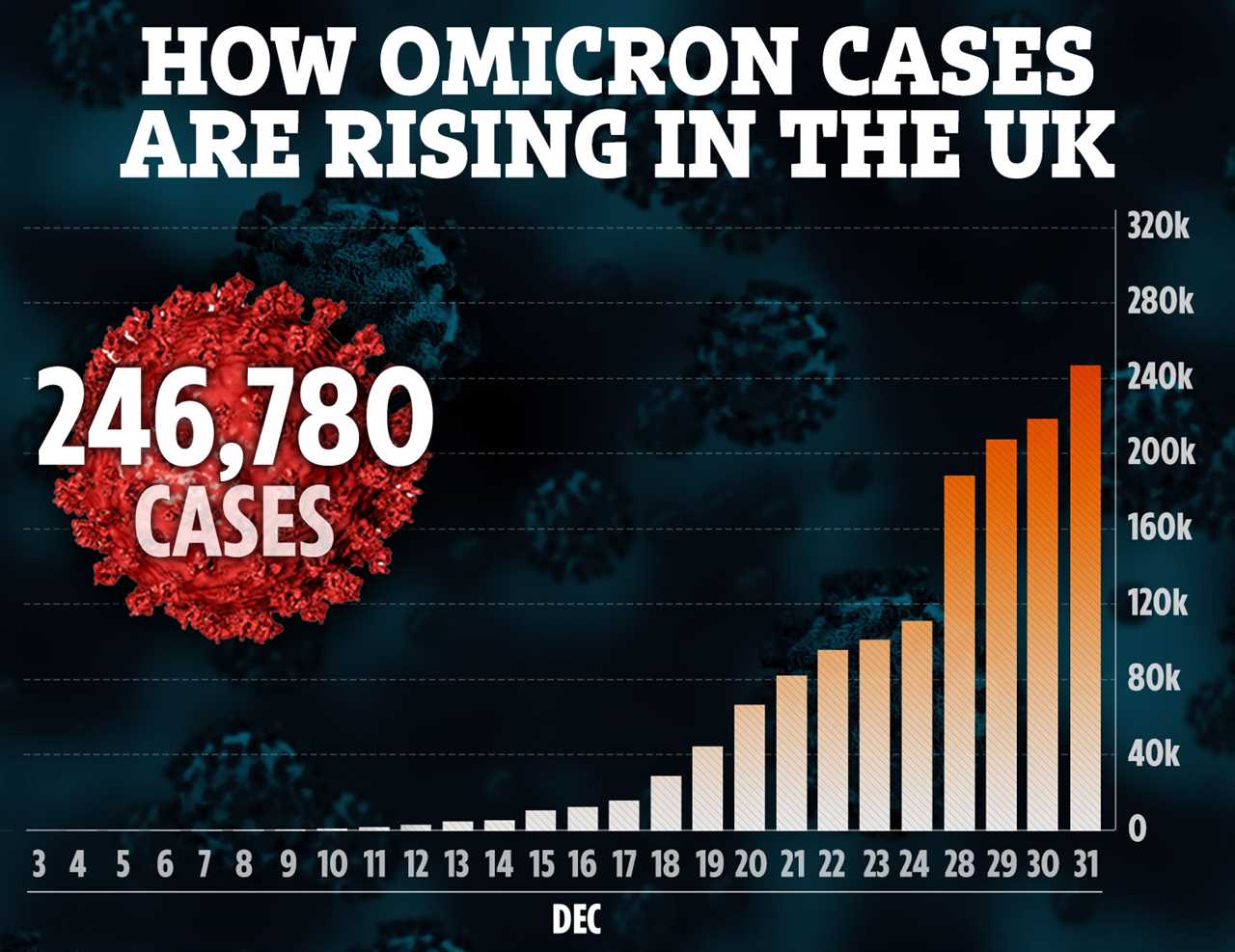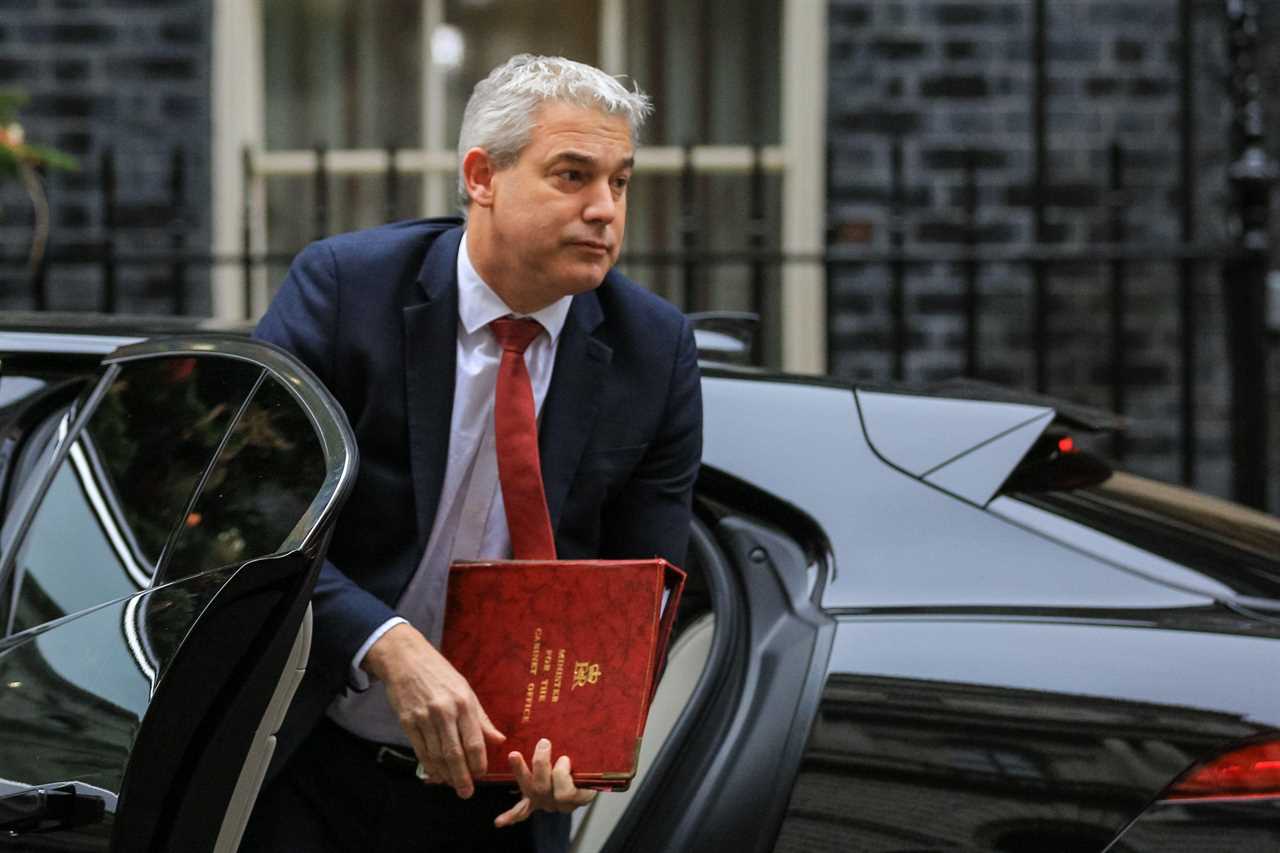BORIS Johnson has ordered a blueprint to be drawn up to deal with up to 300,000 Covid-related staff absences across the NHS.
The Prime Minister demanded “robust contingency plans” to meet the worst case scenario for numbers off-work with the virus or self-isolating.


It comes as pressure mounts to cut the week-long isolation period to five days — and give NHS staff, police, lorry drivers and other essential workers priority for PCR tests.
Health experts, however, argue that new restrictions must be brought in fast if Omicron cases continue to rocket.
But several Tory MPs insist lockdowns must not be reintroduced.
Cabinet minister Steve Barclay is leading the Government’s response to manage absences across the public sector in which 5.6million Brits work — 1.3million of them in the NHS.
Public sector chiefs have been told to submit plans on identifying extra staff to fill the gaps in the event ten, 20 and 25 per cent of staff are off.
The Cabinet Office’s high-tech Situation Centre — SitCen — will flag up potential disruption and draw up proposals to try to deal with it.
Steps have already been taken to mitigate any workforce shortages or problems through supply chains.
Funding worth £462million has been allocated to support recruitment in adult social care and increase the numbers of HGV drivers with quicker testing and skills boot camps.
Ministers have also moved to recruit teachers back to their old jobs to fill in at the start of the new term.
And efforts have been made to speed up the registration of nurses, with 800 signing up in the past week.

Follow our Covid live blog for all the latest news & stories
Whitehall also insists that cutting the isolation period from ten to seven days — with two negative tests — has helped, as has daily contact testing to prevent the need for isolation.
Mr Barclay said: “As people return to work following the Christmas break, the high transmissibility levels of Omicron mean business and public services will face disruption in the coming weeks, particularly from higher than normal staff absence.
“We have been working through the Christmas period to prepare where possible for this — with all departments liaising closely with public and private sector leaders who are best placed to operationally manage their workforces.”

Mr Barclay, who is chairing daily meetings on the crisis and keeping a close eye on schools, added: “The best way to combat Omicron is to get boosted and I encourage anyone who is eligible to get boosted now.”
Officials insisted last night that Omicron had been controlled in most parts of the public sector.
But Matthew Taylor, chief executive of the overall health care body NHS Confederation, said a perfect storm of Covid cases could cut a swathe through the NHS.
On Boxing Day, 24,632 NHS staff — about 1.9 per cent of the workforce and nearly double the figure at the start of the month — were ill or self-isolating.
In the seven days to December 23, there were 2.3million Brits with Covid.
Health Secretary Sajid Javid said yesterday that any new restrictions would be taken only as “an absolute last resort” as ministers awaited the festive period figures on the Covid spread.
Chris Hopson, chief executive of support group NHS Providers, said the next few days would be crucial.
He added: “Government must be ready to introduce new restrictions at pace if they’re needed.”
He added that the vaccines were having a very pronounced effect in keeping older people out of hospital.
Tory MP Andrew Bridgen last night said action should be taken to help people return to work quickly.
He said: “The isolation period should be brought down to five days for the fully vaccinated if you can provide two negative lateral flow tests on consecutive days.
“Essential workers including everyone from the NHS, police and lorry drivers should also have priority in getting PCR tests.
“The quicker they can get back to work if they have a negative test rather than being at home, the better for everyone.”
Mark Harper, chairman of the Covid Recovery Group of Tory MPs, warned against introducing new measures, pointing out that research shows boosters cut the risk of hospitalisation with Omicron by 88 per cent.
He said: “All the evidence so far gives confidence that vaccines continue to provide strong protection against severe disease.
“So the PM should hold firm against further restrictions. Holding firm is often the right decision and often the hardest.
“Lockdowns and ruinous restrictions should not become the default policy choice of the Government.”







